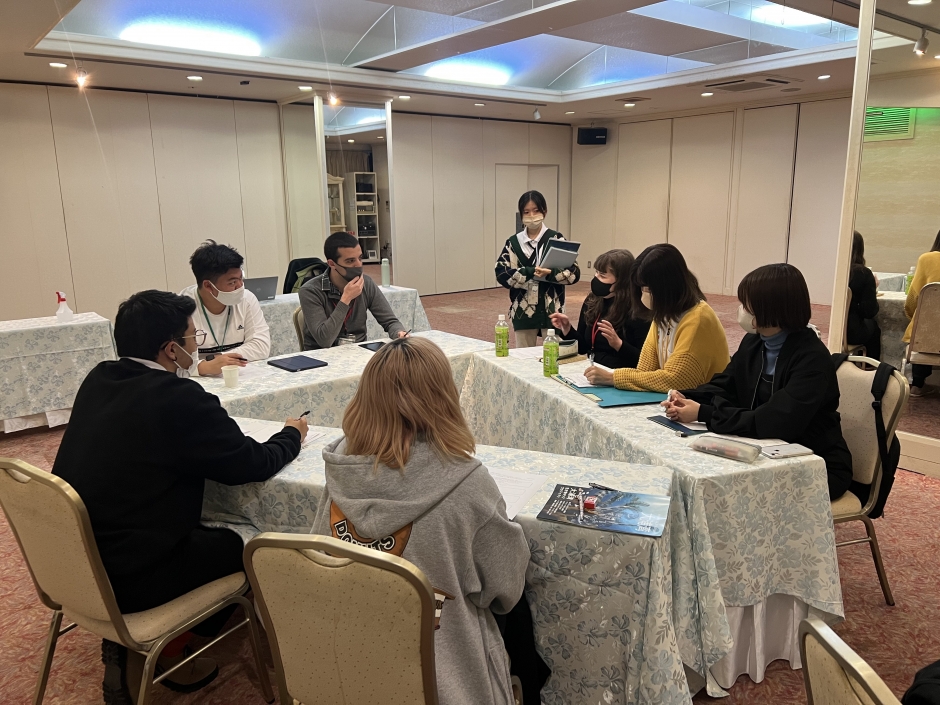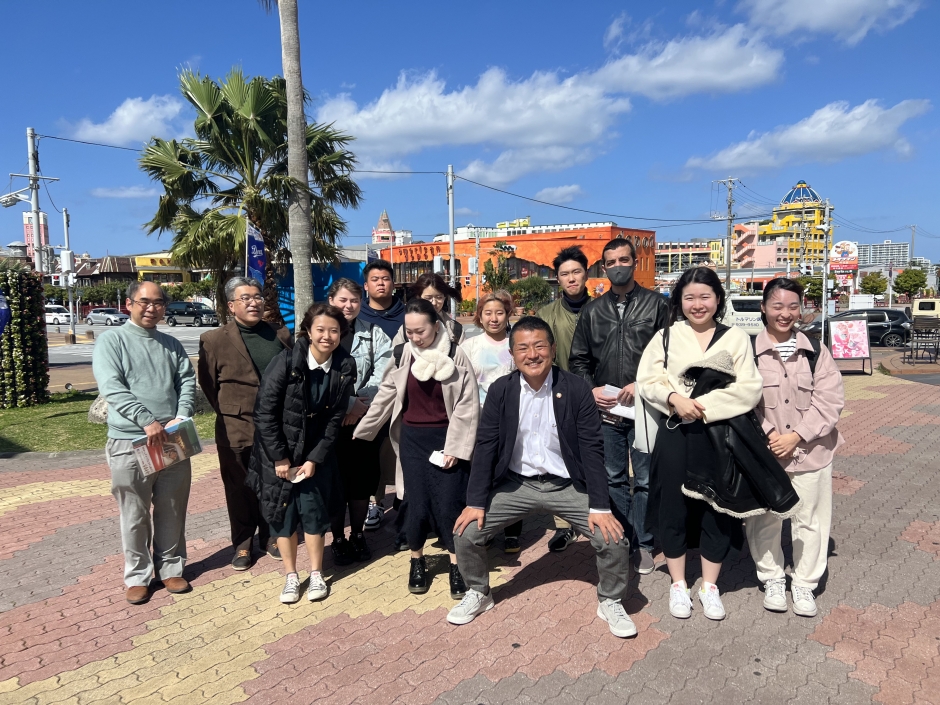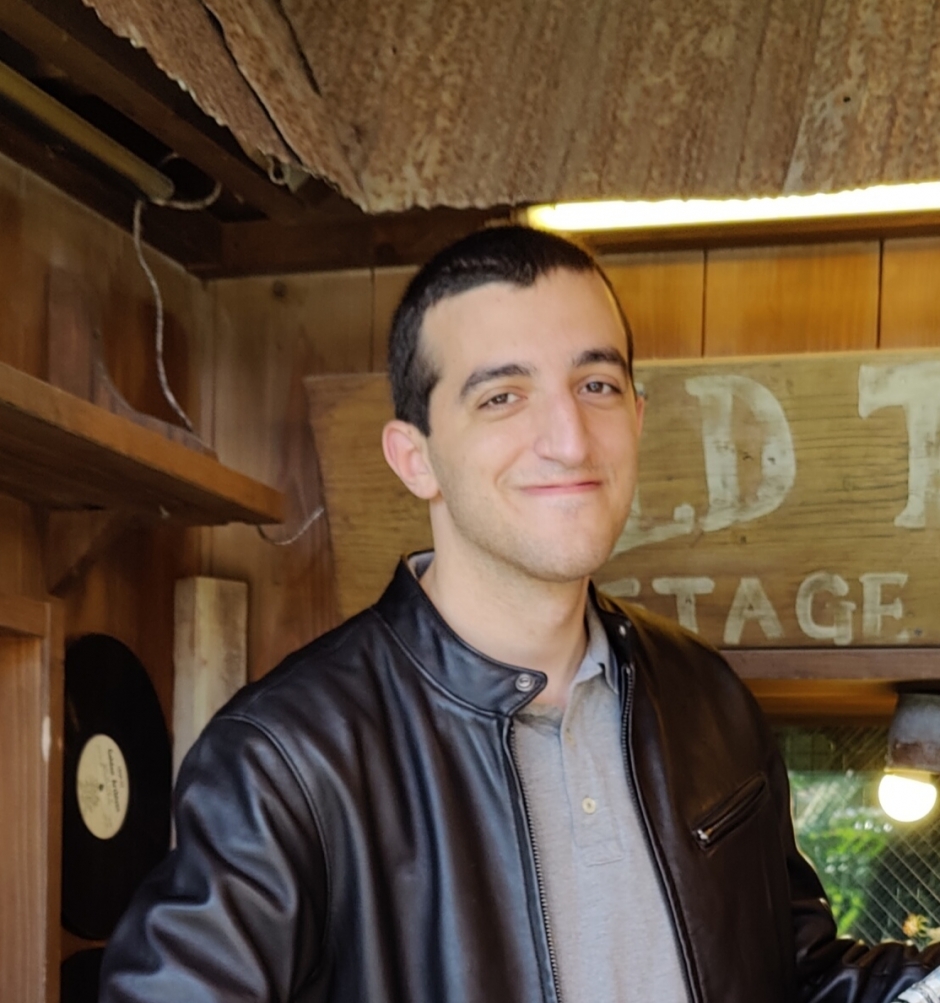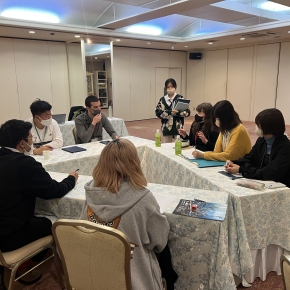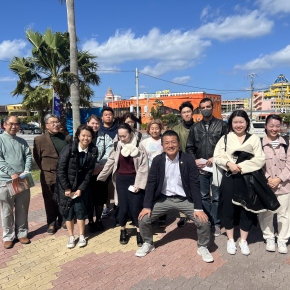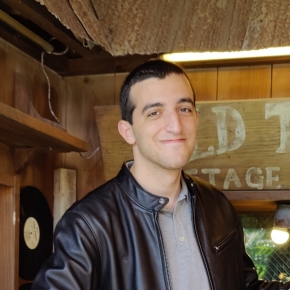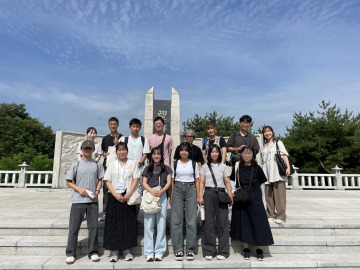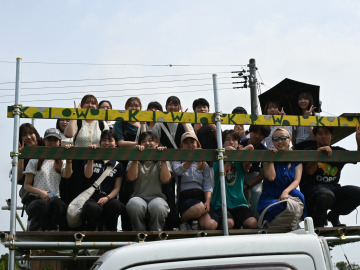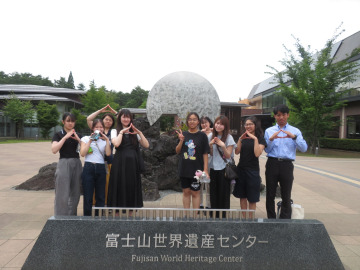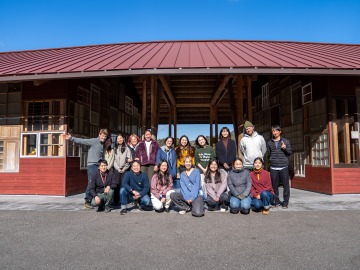Summary of Activities
Place: Okinawa Prefecture
Theme: “To find out the meaning of viewing “The issue of American Military Base” from the perspective of the local people living in Okinawa. “
Number of Applicants: 10
Period: February 20th (Mon) 2023~ February 23rd (Thu) 2023
Report of Activities
For the first time, the SI program field training was conducted in Okinawa Prefecture.
In this training program, 10 WISH dormitory students engaged in interviews with relevant people and fieldwork to learn what it means to think about regional issues from a regional perspective, using the case of the U.S. military base problem in Okinawa.
Under the coordination and guidance of Professor Kiyoshi Fujinami of Okinawa International University, a regional hub university, the students learned both theoretical and practical aspects of thinking about U.S. military base issues.
On the first day, the students learned from the professors that they should consider the U.S. military base issue using data and evidence from an academic approach (economics, politics, law, history, etc.).
From the second day onward, the students visited historical sites in Okinawa to get a more in-depth understanding of the situation on the ground, and learned that the U.S. military base issue is deeply rooted in history.
Visiting the Henoko base relocation area, which is at the forefront of the issue, gave the students an opportunity to get a deeper sense of the conflicts in the region. They also visited local officials (local government officials, local residents, etc.) and learned about the issues from the perspective of each stakeholder. In particular, exchanging opinions with students of Okinawa International University (members of SmiLife, a group of volunteer historical guides) was a valuable opportunity for the participants to learn from each other as university students.
On the final day, the participants presented the results of their learning to coordinator Professor Fujinami and students of Okinawa International University. Divided into teams, the participants analyzed the causes of Okinawa’s problems from their own perspectives and expressed their opinions on the future of society. Despite the limited schedule, each dormitory student sincerely tackled the “issue with no right answer” of the U.S. military base problem, and gave excellent presentations.
An Appicant’s Voice
November 2021, Haifa, Israel.
I come back home from another working day in the late afternoon, walk my dog, and after a quick break go to my desk to study for the JLPT while being on a voice call with friends from abroad. Throughout all this time, the loud sound of military aircraft is heard outside continuously. While I was not too bothered by it and assumed it is probably just another exercise or a patrol, one of my foreign friends found it to be very odd and wondered why would the air force fly over a densely populated area like this for so long and bother us with the sounds. That moment helped me understand how uncommon this situation is from a global frame of reference, how the way I rationalized the aircraft maneuvers in my mind almost immediately is the result of growing up in a complex reality most people have never experienced (and frankly, I hope they never will), but also – it reminded me how remarkably deep and strong is the trust between the people of my country and the armed forces. The same deep trust that was demonstrated to me on multiple occasions in my life, in times of peace, in times of war, while living as a citizen, and while serving as a soldier.
Fast forward a little over one year to February 2023, I had the privilege of participating in an SI study tour organized by WISH to the island of Okinawa in the far south of Japan, with the main topic surrounding the visit being the problems caused by U.S. military presence on the island. I was aware that such an issue exists before going on the tour, but I saw it as a simple issue where the residents see the bases as a historical reminder of Japanese loss in WW2 or are simply unhappy about the presence of military bases in their proximity due to pacifist worldviews, which causes them to want the soldiers to leave. I assumed it was an issue stemming from nothing more than perception and ideals, as much as those are important and should be respected.
The day we arrived on the island, that assumption was completely debunked. We learned that just like every other social issue involving multiple nations, the issue of U.S. military presence in Okinawa is complex, multi-layered, and controversial, and it is far, far more affected by events affecting the locals in their daily lives than events that took place before the vast majority of them were even born. We have seen Futenma airbase, which is located right in the middle of Ginowan city and forces a large detour in any commute between different parts of the city and is full of V-22 Osprey aircraft, which might look technologically impressive but haunts the locals with fear due to multiple past accidents which directly harmed them. We have seen the Henoko beach area, where a local movement opposes the relocation of another base to it due to environmental and quality of living concerns (among others). One by one we learned of aspects of the issue with each one adding another whole layer to the problem I have mistakenly – and dare I say, rudely – assumed to be simple.
Regardless, for the whole visit, I could not help but compare the life near bases in Okinawa to the life near bases in Israel. The loud sounds of fighter jets I was well familiar with from Israel are equally familiar to the Okinawans. I found myself describing things I witnessed in Okinawa to my family and friends using the Hebrew slang for them in our army and they perfectly matched the description. The sight of the inner areas of the bases took me back to when I was one of them, in a different time and place and serving another country. The text message exchange between the guy who joined the tour with me and had friends serving in Kadena airbase brought back a lot of memories of when I was the one on the other side of the chat, receiving messages from my friends and family, asking when can I get to the outpost gate to see them. Or of when I was the one going to visit my friends in theirs.
But not everything was similar. In fact, despite the interesting amount of similarities, the differences outweighed them. Starting with the clearest one, I was serving my own country, in my own country’s territory, surrounded by my own country’s people, and both before getting drafted and after finishing my service the bases I grew up around belonged to my own country’s armed forces. In Okinawa, they live next to bases belonging to a country on the other side of the ocean and don’t get to serve in the bases themselves. Also, while in Israel every start and end of the week it’s impossible to escape the sight of soldiers commuting en masse back home from their bases and vice versa, giving a sense of connectivity through transportation, in Okinawa this does not happen, and the Americans placed in the island live inside their bases for their entire rotation, contributing to the sense of separation. Another thing that I can’t go without mentioning is that in Okinawa we have witnessed protestors blocking the gate to U.S. Camp Schwab, preventing a long convoy of trucks – all of them with Japanese drivers, by the way – from entering the base. Even though criticism of the military is alive and well, a scenario like the one we witnessed in Camp Schwab taking place in Israel is unimaginable.
This is where we reach the key takeaway from the tour: The morning of the day we left the island, we held presentations about the things we witnessed and the issues we learned of in front of the other members of the study tour, the professors that accompanied us, and local students from the International University of Okinawa. In my group’s presentation, and my remarks right after when we all took turns in sharing our final thoughts, there was one Japanese word that was repeated a lot, which I believe is the keyword of the issue.
That word was Shinrai. “Trust”.
This word, in my humble opinion, encapsulates everything we witnessed and everything I wrote about so far in this essay. Everything we witnessed in Okinawa, the problem we heard of, the aspect of daily life in Israel I mentioned, the similarities, and especially the differences. Everything narrows down to trust. Be it the presence, or lack of it.
In Israel, there is trust not only because we get to live through both perspectives, but also
because we know painfully and tragically well why they do their job, and because the military proves to the public it cares about its well-being and in return receives public legitimacy.
Thus, there is a mutual understanding between everyone – The people know the soldiers are
there to protect them and nothing more, and the soldiers know that the people back them and will let them do their job.
This is most certainly not the case in Okinawa and the reason for this as I see it is that there were too many steps taken in the exact opposite direction of trust-building, like the aforementioned ones about the accidents and the Henoko relocation plans, and it made the U.S. presence lose public legitimacy.
Such a lack of trust is increasingly dangerous for the island and Japan as a whole – the external threats facing Japan vary in scale and likelihood but, like the external threats against Israel, are all very real. In the north, the current international status of Russia has triggered gradually increasing incitement against Japan within Russia, irredentist sentiments towards Hokkaido and its Ainu population, and Russian military maneuvers reaching as south as the Tsugaru strait, right above the track of the Hokkaido Shinkansen. In the northwest, North Korea is repeatedly violating Japanese sovereignty with rocket launches and missile tests reaching all over Japan as far as the outlying islands of the pacific. In the west and southwest lie the strait of Taiwan and the South China Sea, two increasingly tense and increasingly militarized regions, each for their respective reasons, right on Okinawa’s doorstep.
As satisfied as the majority of Okinawans claim they will be in case the Americans end their military presence on the island, Japan can under no means allow itself to remain undefended in this sadly increasingly tense era forced on it against its hopes, and until the Japanese Self-Defense Forces reach the capability to defend Japan from these threats on its own, the Americans will not and should not leave.
So, what can be done to establish trust?
In my opinion, what should be done is to look for trust-building opportunities in anything that is planned for the island. Promote coexistence, cultural exchange between locals and soldiers and their families, cooperation between local officials and U.S. commanders, take steps that are mutually beneficial for both sides, etc.
Case study: Once the American base in the city of Chatan got evacuated, Chatan started a large-scale land reclamation project beyond the areas it blocked, on which multiple facilities were built. These include the “American Village” district – one of the most popular tourism and leisure spots in Okinawa. A possible lesson from Chatan’s case is to do it in the reverse order:
Relocate an American base from the Okinawan heartland to reclaimed land that is already planned to be reclaimed by the local policymakers, so it can be used within a very short timeframe by the locals when the day comes and the base is evacuated. Another possible step is starting a joint project between the U.S. armed forces and the JSDF to improve the operational safety of the Ospreys and improve the sense of personal safety among locals. The more steps like these are taken, the more the locals will feel that their needs are being addressed, directly resulting in increased trust. Trust won’t be built in a day this way, nor a year, maybe not even in a decade. But it doesn’t mean it’s impossible.
I will finish this essay with another story – Not long after I got drafted, in the Beersheba Central station, while commuting home from boot camp, middle-aged women gave me and my teammates sweets and told us “This is for you, for protecting us”, and a group of teenage boys gave us their seats on the train. It was one of the most emotionally moving experiences of my entire service and was strong evidence of the trust we had and the immense responsibility we bore to keep it justified.
That is the reality when trust between the people and the soldiers runs deep.
That is the reality that Okinawa needs and deserves. Now more than ever.
(L.O.)

